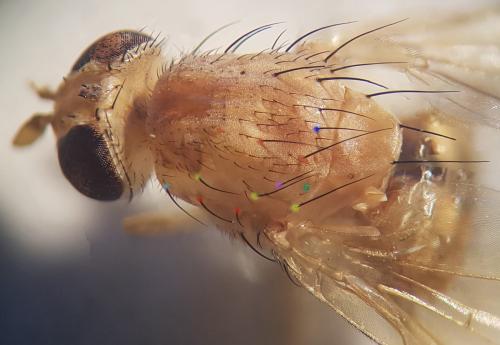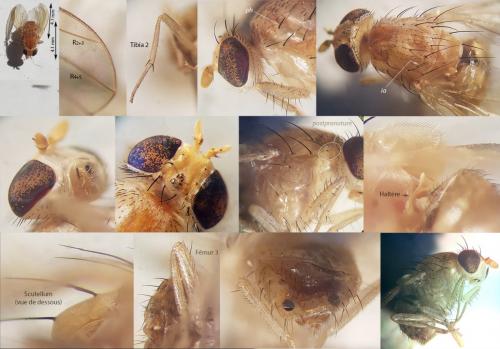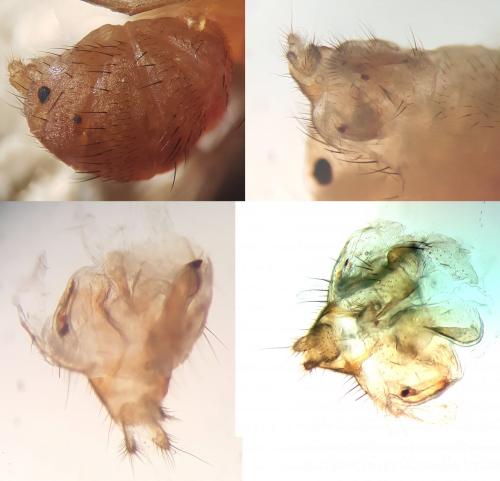Posted by Widus on 11-04-2020 20:37
#1
Hi,
I posted this image on "Le monde des insectes" and we reached the genus
Sapromyza but we are stuck there. I still have the fly so I can look at additional features if needed. Is there a key available for this genus?
Body size: 4 mm.
Edited by Widus on 11-04-2020 20:38
Posted by Widus on 18-04-2020 16:43
#2
Another view. Do you see intra-alar (ia) setae here? I color-coded some of the setae for convenience.
Edit: the intra-alar setae is the purple one.

Christian Widmann : Suisse : Lausanne : 1010 : 31/08/2019
Altitude : 632 m - Taille : 4 mm
Réf. : 256810
Edited by Widus on 13-05-2020 15:29
Posted by Widus on 13-05-2020 15:26
#3
More images below (click on them to enlarge them). I came to the conclusion that this is a female
Minettia suillorum (Robineau-Desvoidy, 1830). Would you agree?
Of note, Martin Ebejer (Zootaxa 2019 4543 (1): 037–051) provides convincing evidence that this species is synonymous to
tinctiventris,
muricata, and
subtinctiventris.
 Réf. : 256939
Réf. : 256939
 Réf. : 256963
Réf. : 256963
Edited by Widus on 13-05-2020 15:27
Posted by Widus on 31-05-2020 19:48
#6
Some doubts have been raised by Swiss dipterists about the identity of this fly. Therefore, I sent it to Martin Ebejer, a world expert on Lauxaniidae. Martin has agreed that I post his comments here:
"This specimen is a real enigma! It does not run through any key with any level of confidence except to
suillorum and
punctiventris, but clearly it is neither of these two. I cannot match it with any of the species in my collection. The terminalia are unusual as well.
It would take me a long time to dissect females of several other species to see if it matches any of them, but there also I have a difficulty because it does not match any of my specimens on external features to begin with. Also, hardly any female Minettia that I do not have had the female terminalia illustrated.
Is there any chance this came from outside the Palaearctic? If definitely wild caught in Switzerland, then you should (with a lot of patience, some perseverance and a little luck) find more specimens including males.
I’m afraid I cannot give you an identification for this one."
Of note, I collected this fly dead in my kitchen. It may have come from outside but one has also to contemplate the possibility that it came with a parcel from abroad or from a foreign good we bought.


